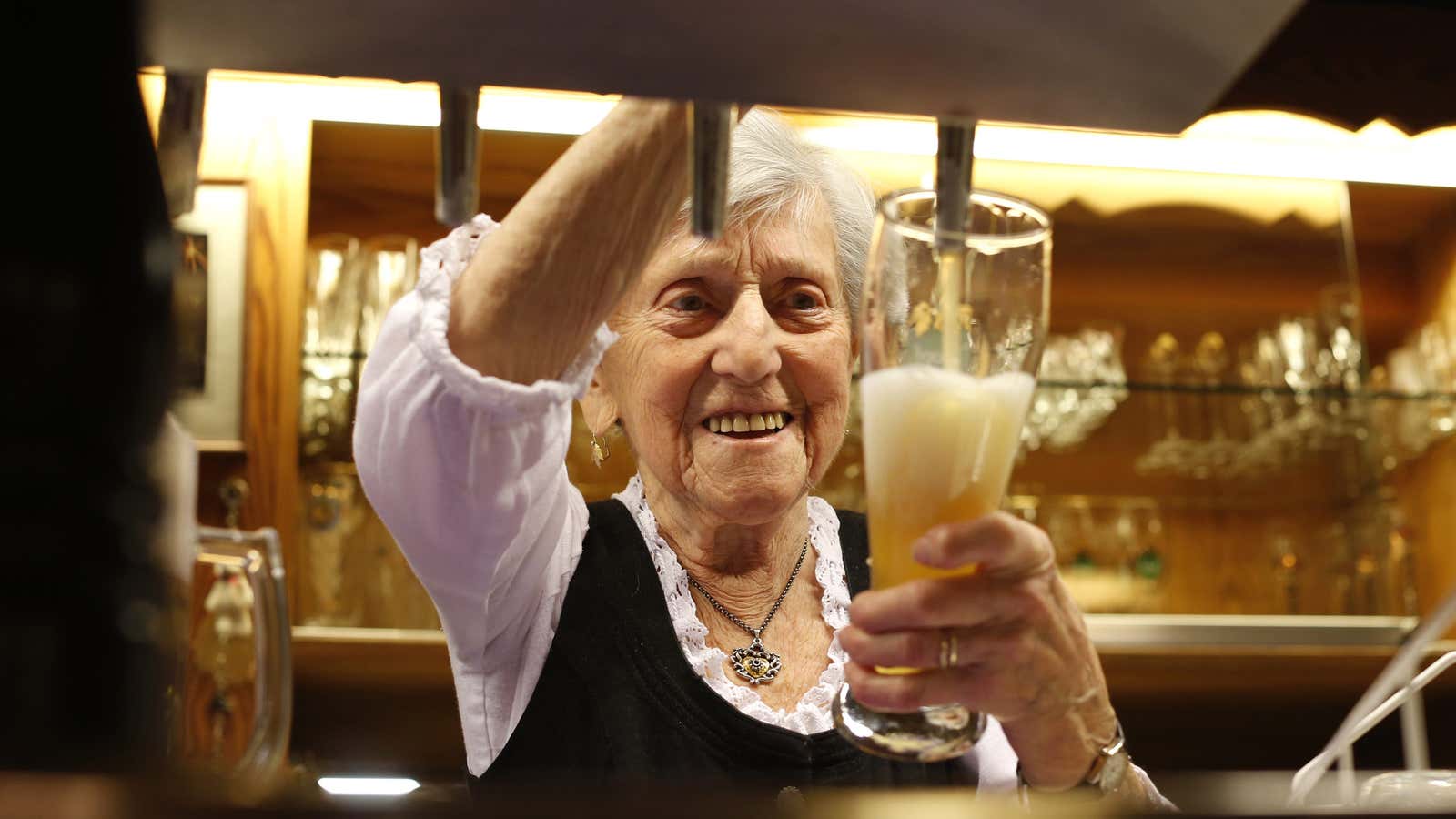The idea of “binge drinking” typically conjures up images of college frat parties and the dread of the next day’s (days’) hangover. But not all binge drinkers are young adults who have yet to get their first full-time job—in fact, a growing number of them are senior citizens, according to a new study published Wednesday (July 31) in the journal Journal of the American Geriatrics Society.
Researchers from New York University found that between 2015 and 2017, more than 10% of senior respondents reported binge drinking in the last month—the highest it has been in the past decade, according to a separate study published in 2018, by a team with the same lead authors. They analyzed data from the US National Survey on Drug Use and Health, which asks thousands of respondents questions about their alcohol and drug use annually. Specifically, they homed in on alcohol use among adults 65 or older, and defined binge drinking as having four drinks in one sitting if respondents were women, and five drinks if respondents were men.
The raw numbers are even more dramatic. The total number of adults over 65 in the US has ballooned, jumping from 36.6 million in 2005 to 49.2 million in 2016. Scaling up the survey results, that means about 3 million older American binge drank in 2005, compared to more than 5 million by 2016.
A single bout of binge drinking itself isn’t a death sentence, but it’s not great for your health, especially if it becomes a pattern. Alcohol is a known carcinogen, and drinking a lot in a single sitting taxes the liver—the primary organ that breaks down alcohol in the bloodstream—more than drinking the same amount over several days. In this survey, men were more likely to binge drink than women, and they were more likely to smoke cigarettes or marijuana, too.
As the health care costs of an aging population grow, it’s important to understand any trend that might influence overall medical outcomes. But it’s not clear if binge drinkers are less healthy overall: Although they reported slightly higher rates of visiting the emergency room in the past year, they were also less likely to have multiple chronic conditions, like high blood pressure and diabetes.
The survey didn’t include any information about why this group is drinking as much as it is—although social factors likely play a role. “Drinking can be a tool to deal with social anxiety,” says Susan Messina, the deputy director of Iona Senior Services in Washington, DC. It’s not clear from this paper whether or not adults are drinking alone, or if they’re with friends or family.
It’s also not clear if loneliness, which disproportionately affects older adults, is a factor. Feeling isolated may lead some people to drink more, but it’s impossible to say if drinking is the cause or the effect, Messina says. It could be that seniors who are binge drinking now may be doing so because they’ve got a smaller social group. Alternatively, poor drinking habits throughout life could have also isolated seniors in their earlier years, leading them to feel lonely now, while they continue to drink the same amount they had before.
All these data are self-reported, which means that it’s impossible to verify whether or not they accurately reflect participants’ drinking habits. It also means it’s impossible for the team to say why the trend in binge drinking is going up.
Drinking can be enjoyable, but it’s also a risk for everyone—especially in larger quantities. Even though they’re not the typical binge-drinking demographic, seniors deserve to have their doctors consider all their habits in order to get the best care.
